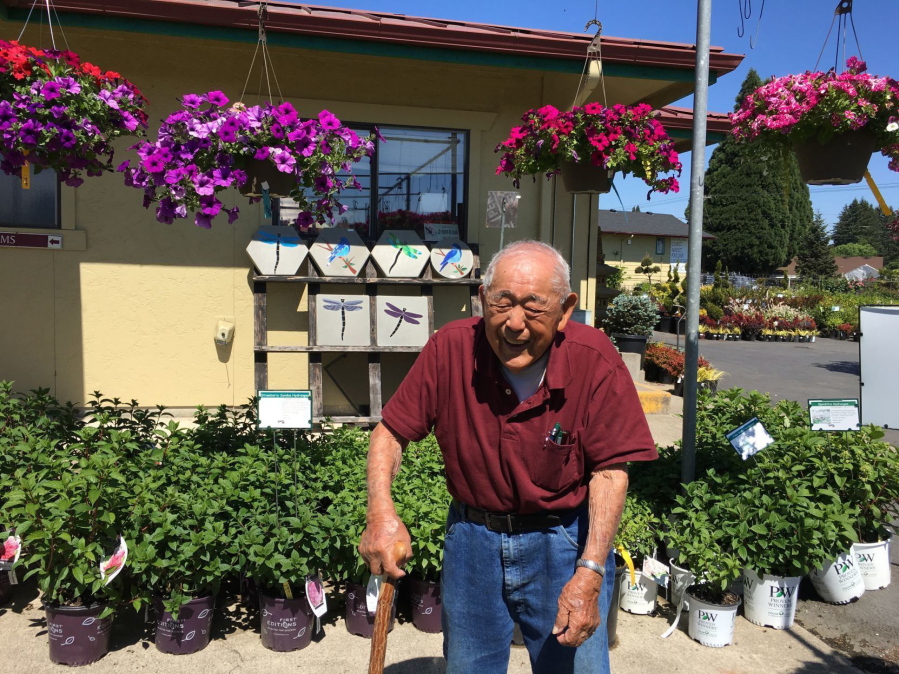WOODLAND — During his 96 years on Earth, George Tsugawa was jailed in a Japanese internment camp, forced to cope with rampant racism and worked his way out of poverty, to name just a few of his hardships.
Today, he owns a thriving nursery in Woodland and is frequently seen supervising his business, cracking jokes with customers and employees. According to Tsugawa, the obstacles in his life helped him become resilient.
“The experiences that I’ve gone through, with the internment and this and that, it makes you a stronger person,” he said. “That could be something I’d like to pass onto people, to become strong and never give up.”
Imprisoned
Tsugawa was born in Everett, but he spent most of his childhood in Hillsboro, Ore. His parents, immigrants from Japan, ran a small produce market.



